Ten Foods You Should Eat to Fight Anemia
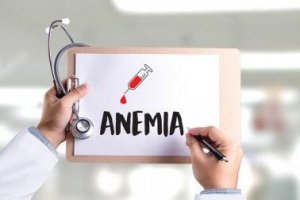
Anemia is a food-related health condition. In many cases, it’s caused by poor nutritional intake. However, just as a poor diet and may favor its manifestation, you can also use your diet to fight anemia.
In this article, we’ll share some details you should know about anemia and certain guidelines that will help you fight it.
What is Anemia?
Anemia is a condition characterized by a decrease in the size or amount of red blood cells. Similarly, it can be characterized by a low hemoglobin level.
In general, anemia manifests as a result of a poor diet that lacks micronutrients such as iron, folic acid, and vitamin B12.
Types of Anemia
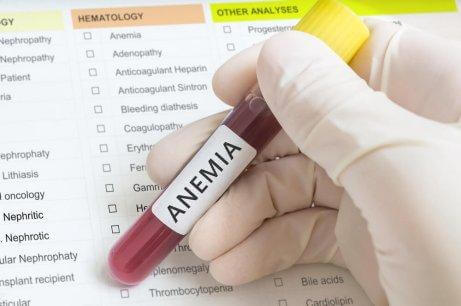
The most common type of anemia is related to lack of iron. It can manifest if you don’t eat foods rich in this mineral, but it may also be caused by poor bowel function which prevents the absorption of these nutrients.
Similarly, excessive blood loss due to hemorrhages, surgery, or menstruation can cause it.
Iron deficiency prevents the normal reproduction of red blood cells. Hence, our body generates fewer red blood cells than we need. In addition, the few that your body does produce are usually very small and with very low hemoglobin levels.
Moreover, anemia may be caused by a lack of folic acid or vitamin B12. In the first case, it’s characterized by the organic generation of red blood cells that are large but very fragile.
Symptoms
Here are the main symptoms a person with anemia suffers from:
- Fatigue
- Constant and intense feeling of cold
- Palpitations
- Headaches
Generally, the most noticeable sign is pallor, but a noticeable loss of strength and weakened mood are also evident.
Discover: Iron-deficiency Anemia in Children
Diet to Fight Anemia
Anemia is caused by a lack or total lack of certain micronutrients. Therefore, consuming foods with these vitamins and minerals can help you recover.
The first thing you have to know are the amounts your body needs daily. A healthy person, except in exceptional cases such as pregnancy, usually requires the following daily amounts:
- Iron: 8 mg for men and 18 mg for women
- Folic acid: About 400 mcg
- Vitamin B12: 2.4 mcg
Here are some of the most beneficial foods that may help reduce your risk of and fight anemia:
1. Alfalfa sprouts
Alfalfa sprouts can provide up to 1 mg of iron per 100 grams (3.52 oz) you consume. In addition, they also contain vitamin C, which helps you fight anemia because this vitamin helps improve iron absorption.
2. Oats
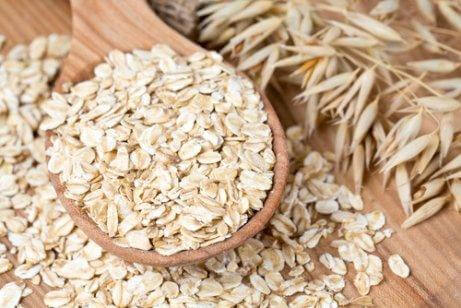
For every 100 grams (3.52 oz) of oats you eat, you’re giving your body about 5 mg of iron. Thus, a cup of oats can provide about 50% of the daily iron requirements.
3. Red meat
Red meat also contains iron. For every 100 grams (3.52 oz) of meat, you get 3 mg iron. However, make sure the meat you eat doesn’t contain a lot of fat.
4. Dried figs
Another food that can help you fight anemia is dried figs, which contain 4.2 mg of iron per 100 grams (3.52 oz). Fresh figs also have iron, but in a lesser amount: 0.6 mg per 100 grams (3.52 oz).
5. Kiwi
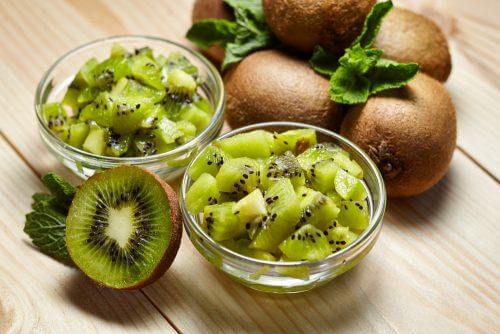
6. Lentils
Lentils have 3.3 mg iron per 100 grams (3.52 oz). Besides that, they contain important nutrients such as folic acid and copper.
7. Brewer’s yeast
Brewer’s yeast contains a great variety and quantity of minerals, trace elements, and proteins. It also contains all the B vitamins.
8. Miso
Miso is a seasoning made of soy, cereals, and sea salt. All forms of miso provide iron, but the most beneficial is hatcho because it contains a total of 7.1 mg per 100 grams (3.52 oz).
9. Pistachios
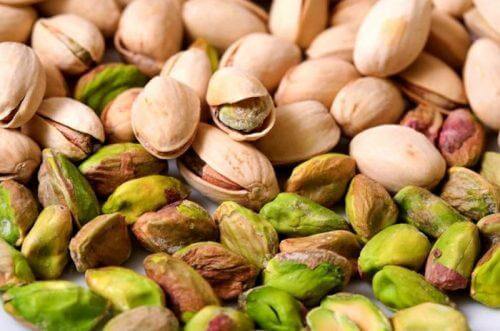
Pistachios can help fight anemia because they contain 3.9 mg of iron per 100 grams (3.52 oz).
Also, they provide about 1.2 mg of copper per 100 grams (3.52 oz), which is another mineral whose deficiency may cause anemia. Thus, the combination of both nutrients can help fight anemia.
Read this article: Eat These Foods to Raise Your Levels of Iron
10. Beets
Beets provide 0.80 mg of iron per 100 grams (3.52 oz). They also contain vitamin C and folic acid.
All these combined nutrients create a barrier that may protect you from anemia. In any case, remember to consult a professional that can help you during your recovery process.
The specialist will tell you what foods you should eat according to your needs. Remember that you should follow a diet to fight anemia in a controlled manner.
All cited sources were thoroughly reviewed by our team to ensure their quality, reliability, currency, and validity. The bibliography of this article was considered reliable and of academic or scientific accuracy.
- Mayo Clinic. Anemia. 2018. Available at: https://www.mayoclinic.org/es-es/diseases-conditions/anemia/symptoms-causes/syc-20351360. Accessed 11/21, 2018.
- MedlinePlus. Ácido fólico. 2018. Available at: https://medlineplus.gov/spanish/druginfo/natural/1017.html. Accessed 11/21, 2018.
- MedlinePlus. Anemia por deficiencia de vitamina B12. 2018. Available at: https://medlineplus.gov/spanish/ency/article/000574.htm. Accessed 11/21, 2018.
- MedlinePlus. Hierro en la dieta. 2018. Available at: https://medlineplus.gov/spanish/ency/article/002422.htm. Accessed 11/21, 2018.
- Wikipedia. Anemia. 2018. Available at: https://es.wikipedia.org/wiki/Anemia. Accessed 11/21, 2018.
This text is provided for informational purposes only and does not replace consultation with a professional. If in doubt, consult your specialist.








